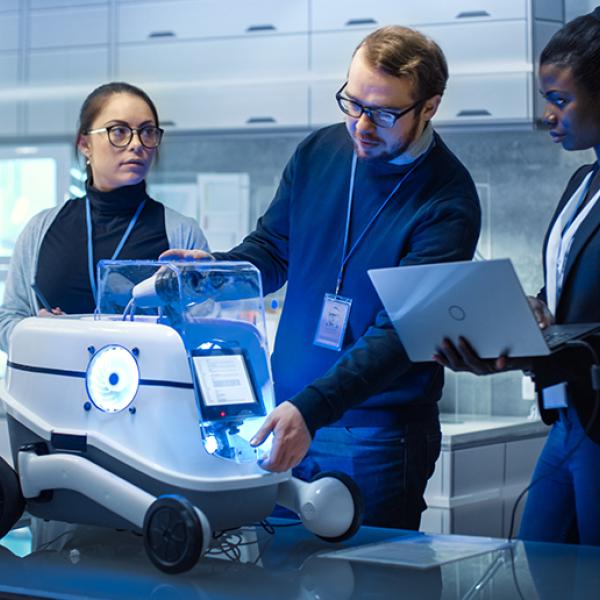Every single-serving coffee pod sold in Canada by two major brands is made in Ontario — and 100 percent compostable.
That’s thanks to a groundbreaking partnership between Competitive Green Technologies (CGTech) in Leamington, Ont., and the University of Guelph’s Bioproducts Discovery and Development Centre (BDDC).
Working with the centre’s director, Amar Mohanty, CGTech’s CEO, Atul Bali, developed a compostable resin made in part from biodegradable coffee chaff — the skin of the bean that would otherwise go to waste — and used it to manufacture coffee pods at a comparable price to pods made from petroleum-based plastics.
“The first problem-statement was made to us by the customer on a cold January afternoon in 2015: ‘We want a compostable resin. Can you give us something meaningful, which is price competitive?’” Bali recalls. “The first pod was on the grocery shelves in November 2015. This speed of innovation — I could not have done it without the university.”
Waste is opportunity
An engineer by training, Bali founded Competitive Green Technologies because of his desire to reduce our dependence on polluting fossil-fuel-based petrochemicals, and move the world toward biodegradable products. He realized that meaningful change on a massive scale would only come if bioplastics could be made for the same price, or less, as plastics made from fossil fuels. Using agricultural waste seemed like a practical and thrifty solution.
“We began with the hypothesis that there is no such thing as waste. Waste is just a product, looking for an opportunity,” he says.
He set up his company in Leamington to take advantage of southern Ontario’s qualities as a manufacturing hub and prime agricultural region. Soon, he and Mohanty were experimenting with creating plastic resins from agricultural waste, using the CFI-funded mixers, extruders and testing facilities at BDDC.
Applications range from coffee to cars
Their first commercial venture was to create bioplastic flowerpots and garage storage bins for a major hardware store chain. As the company grew, Bali acquired the machinery to make his bioplastic resin onsite, then added equipment to manufacture coffee pods. His company currently employs 17 people, produces 1.2 million coffee pods every day, and plans to export its products to Europe and California in the coming year.
Most recently, CGTech worked with BDDC to commercialize a bio-composite resin that can be added to fossil-fuel-based plastics to increase strength, while reducing weight — important qualities for plastic automotive parts, like headlamp housings. Beginning April 2019, the bio-composite resin will be incorporated into automobile parts made in southern Ontario.
“Innovation for me is not the relentless pursuit of irrelevant perfection,” Bali says. “True innovation is finding a real customer with a real problem, wanting a real-time solution that is competitive, sustainable and can be scaled-up globally. And that is the dream that continues to drive us.”





